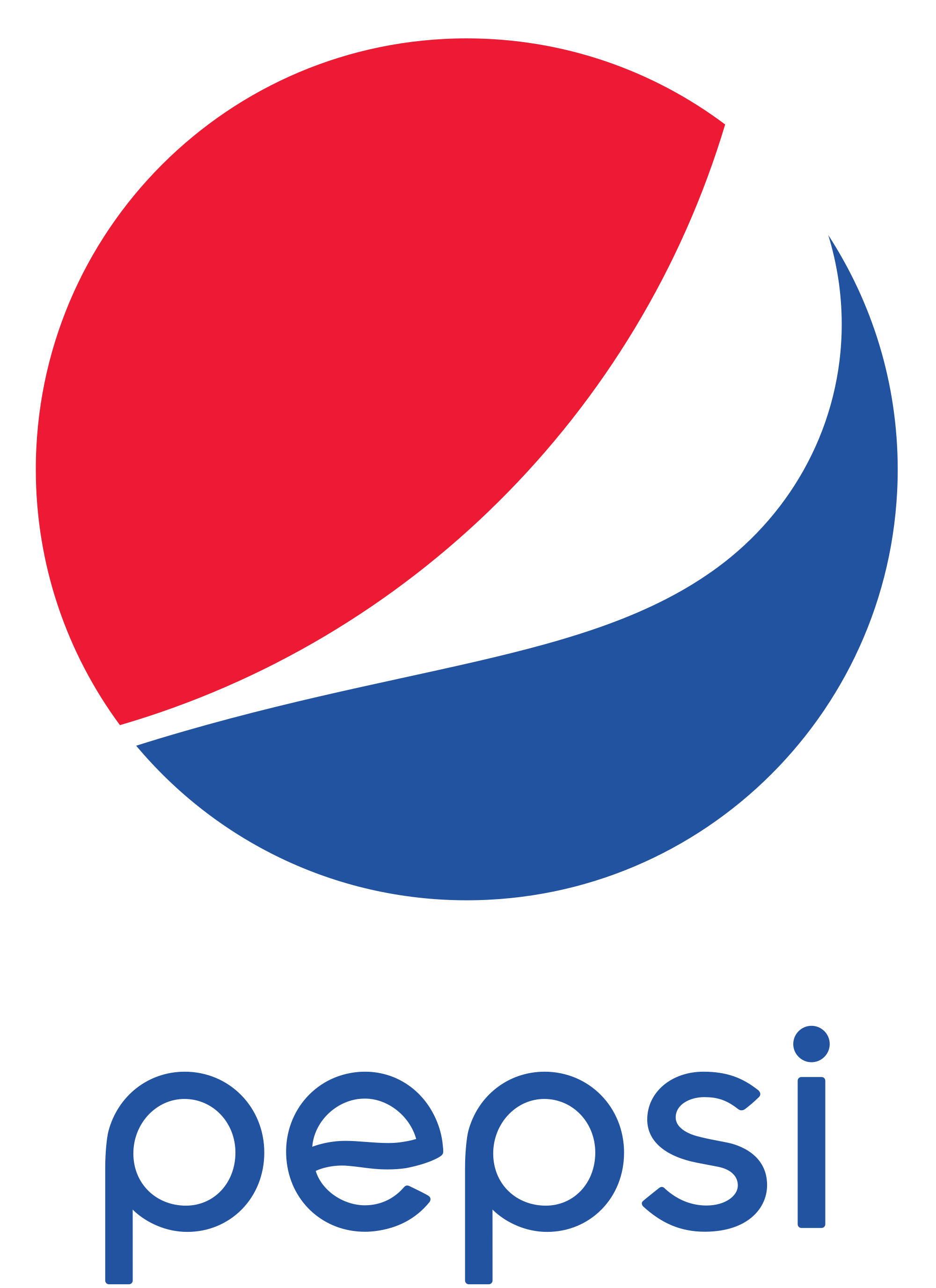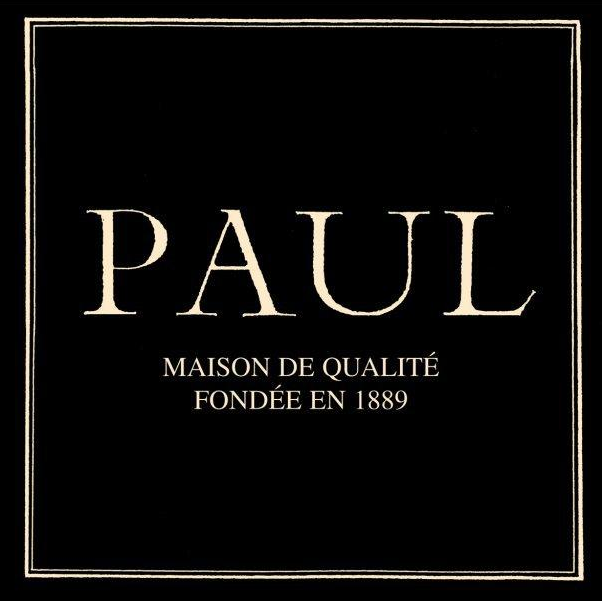Sommaire
Crisis memory 2.0 : April 2017

Location of crisis: Offline
Place of dissatisfaction: Twitter Crisis level:2
Pepsi launched a campaign in which a white model, Kendall Jenner, tried to put an end to violent riots using a can of Pepsi. Against a backdrop of police violence and using an image that had already been widely seen (the Baton Rouge protest in 2016), the message was extremely badly received and triggered a wave of tweets against Pepsi. While the average number of tweets about Pepsi is 500,000, April saw 3.4 million tweets, almost 2 million more than the previous month.
Lesson learned: Using social causes to promote yourself is rarely an appropriate choice. 27. United AirlinesLocation of crisis: Offline
Place of dissatisfaction: Twitter Crisis level:2

 The consequences for United Airlines were immediate. The share price plummeted by 4%, newspapers around the world picked up the story and the number of tweets was spectacular. The company's CEO had to personally comment on the crisis.
The consequences for United Airlines were immediate. The share price plummeted by 4%, newspapers around the world picked up the story and the number of tweets was spectacular. The company's CEO had to personally comment on the crisis.
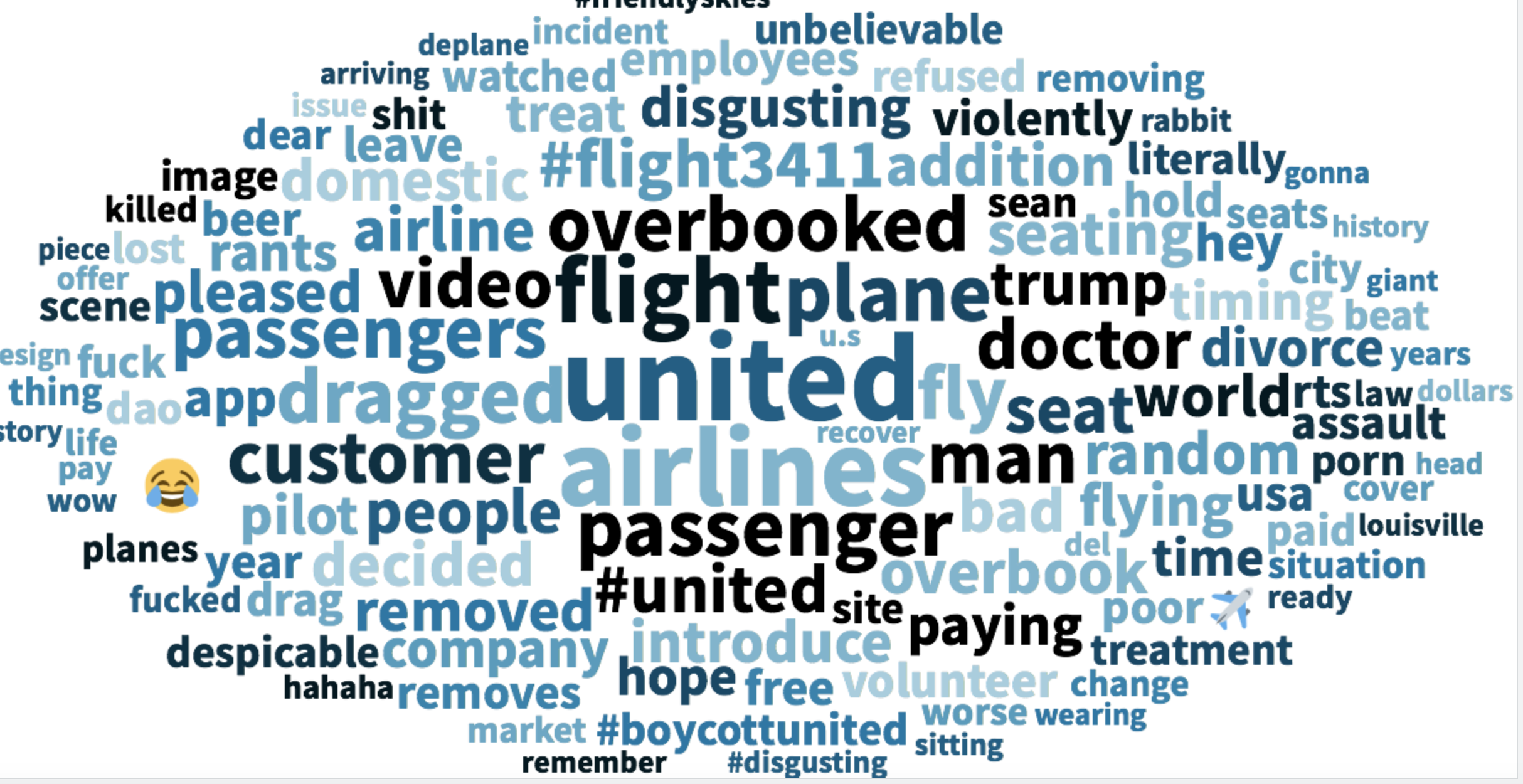 Lessons learned:
Crises will be filmed more and more and will be bigger and bigger.
28. Paul France
Lessons learned:
Crises will be filmed more and more and will be bigger and bigger.
28. Paul France
Location of crisis: Twitter
Location of dissatisfaction: Twitter Crisis level:1
" I am the creator of Paul's bakeries... I am here as an ambassador for the 14,000 people that the company trains, half in France and half abroad, simply to tell you that I have looked at Mr Fillon's programme. And when Mr Fillon talks to us about freeing up work, it's the request made by all the staff to be able to free up work."In response, the hashtag #boycottpaul was launched! It received over 5,500 tweets.
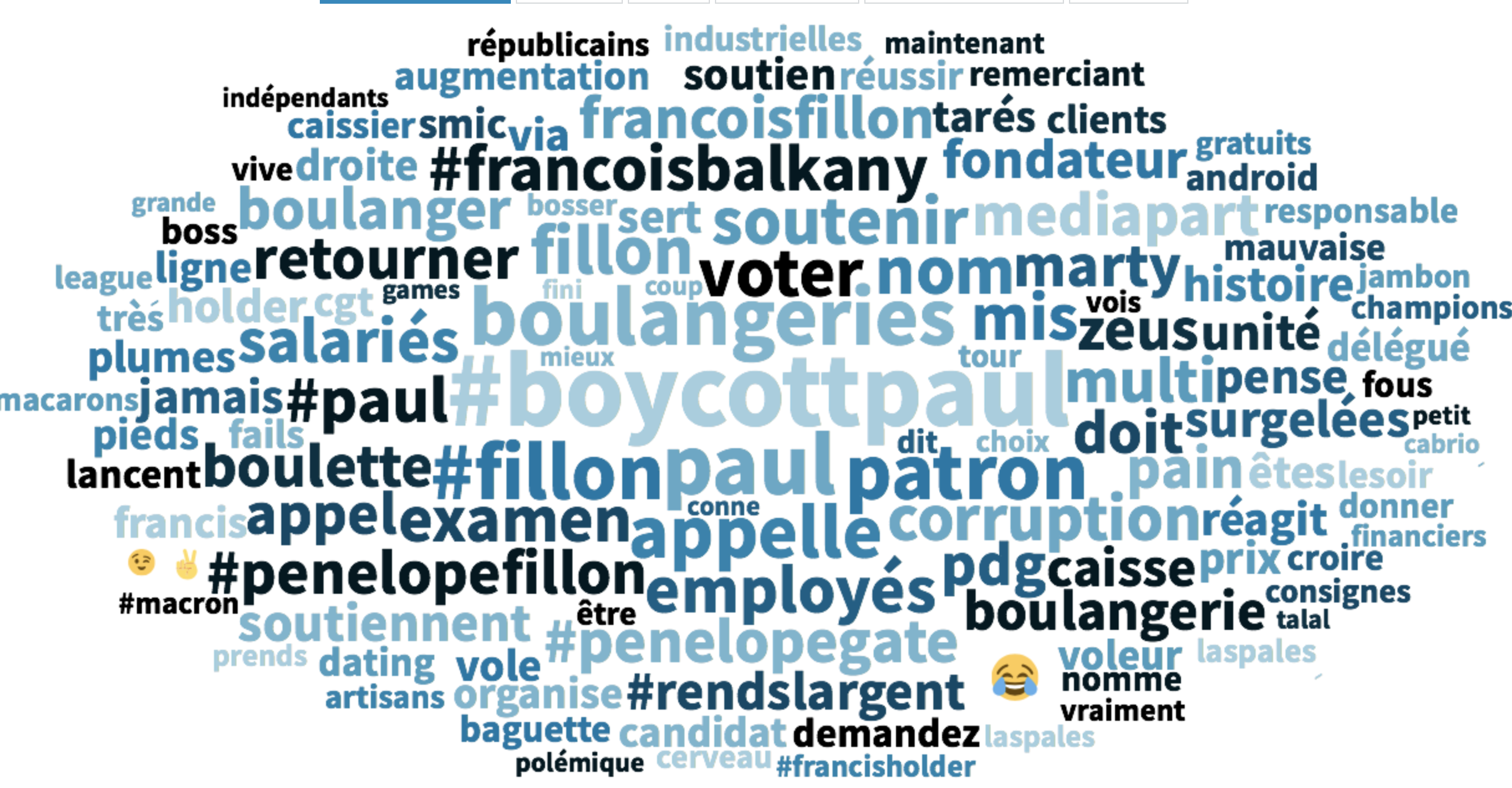
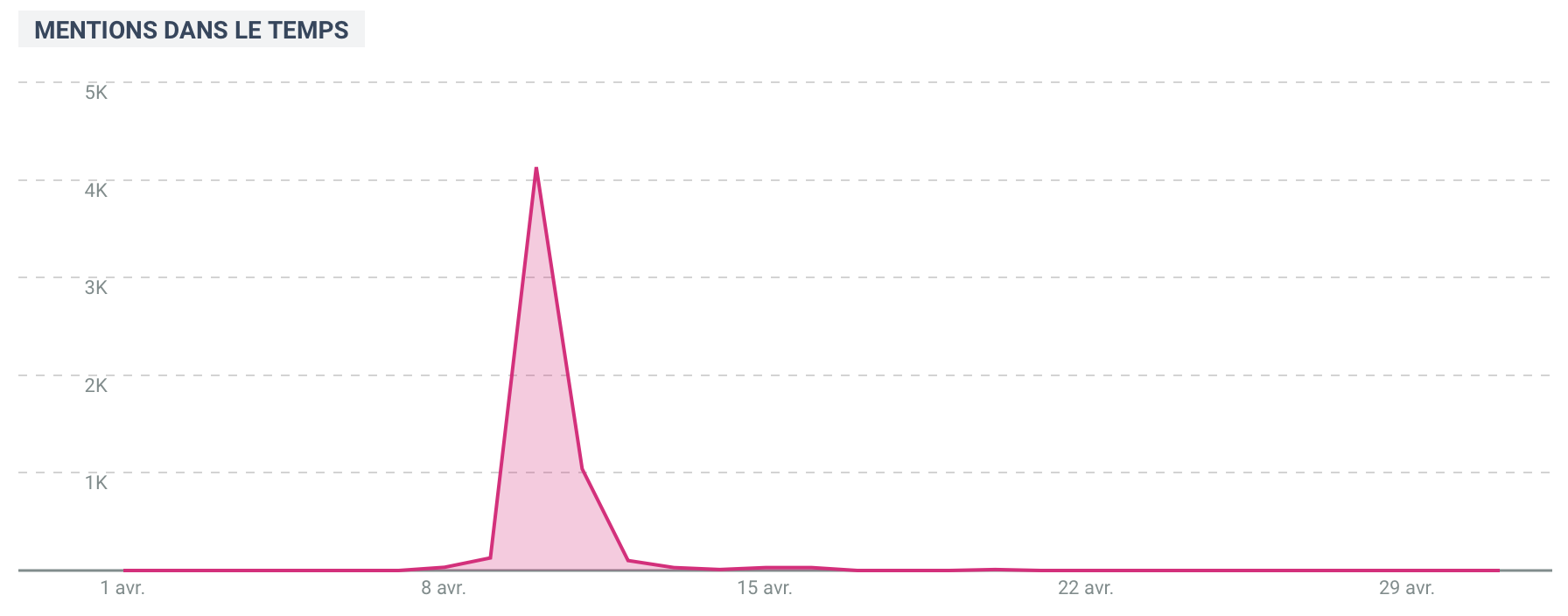 Teaching :
Politics and business rarely mix.
29. Ulker Biskuvi
Teaching :
Politics and business rarely mix.
29. Ulker Biskuvi
Location of crisis: Offline
Place of dissatisfaction: Twitter / Facebook Crisis level : 3
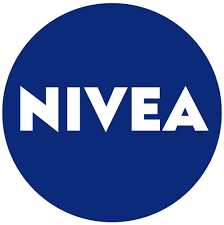
Place of crisis: Offline
Place of dissatisfaction: Twitter / Facebook Crisis level :2
 The whole thing provoked quite a reaction:
The whole thing provoked quite a reaction:
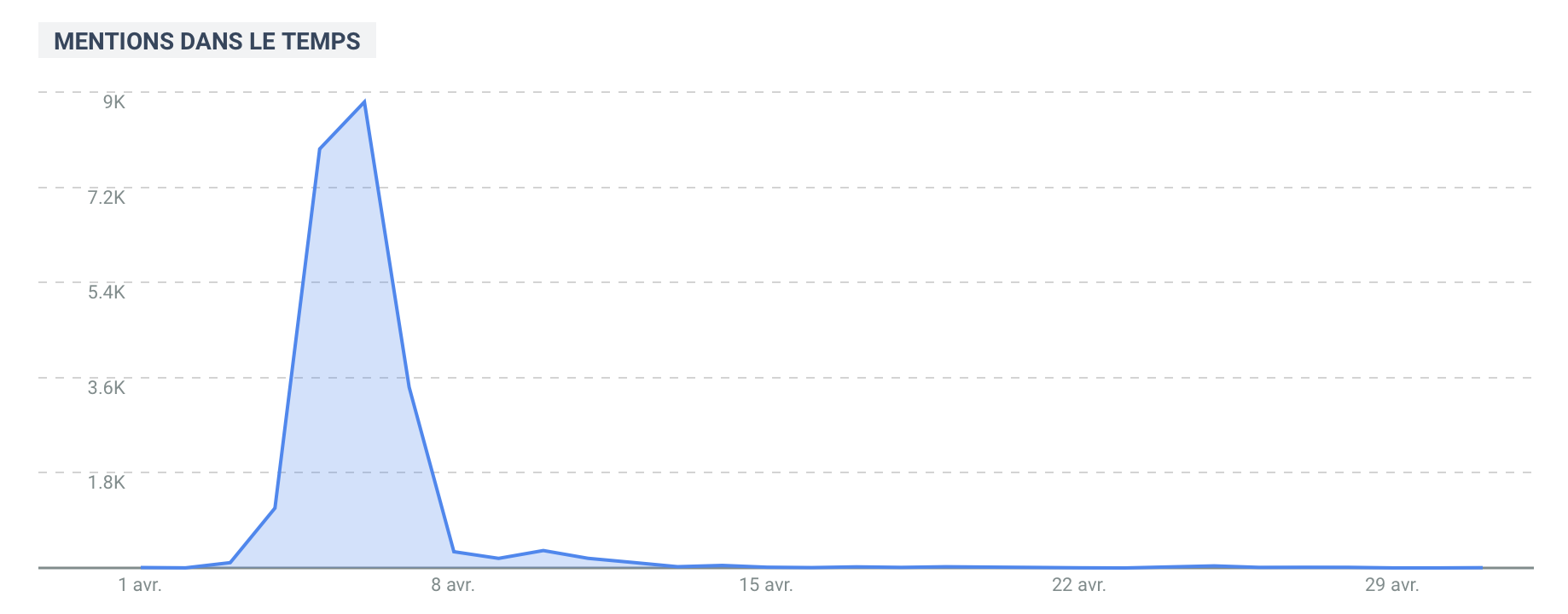
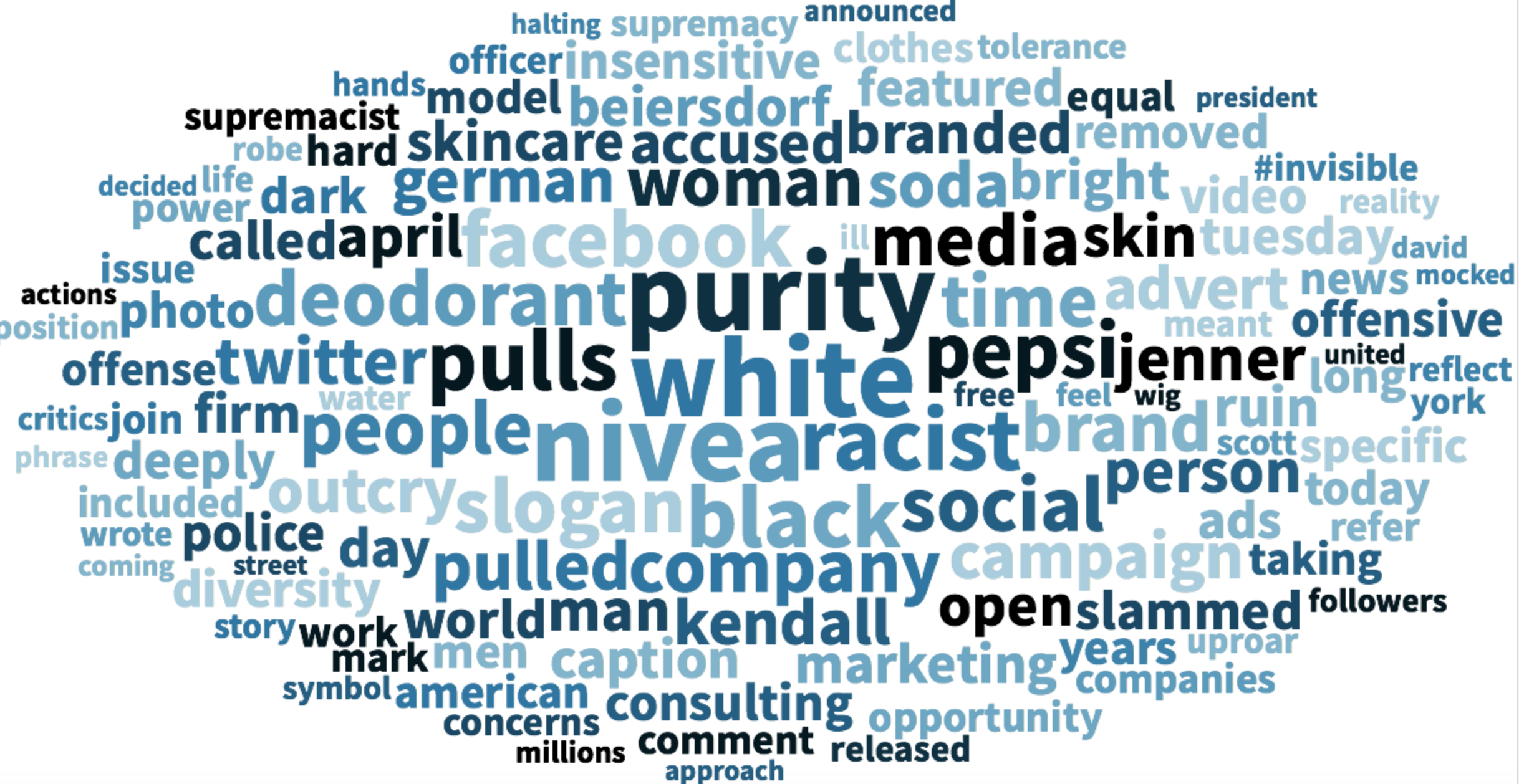 In response to the outcry over the advert, Nivea decided to remove its advert, stating:
In response to the outcry over the advert, Nivea decided to remove its advert, stating:
"there have been concerns about ethnic discrimination due to the Nivea deodorant post on our Nivea Middle East page. We are deeply sorry that anyone was offended by this post. Once we realised that the post was misleading, we removed it immediately. Diversity and equality are core values at Nivea. The brand stands for diversity, tolerance and equality. We value difference. Direct or indirect discrimination must be excluded from all our decisions and in all our activities."Teaching: Typical case that this advert has already had a few copies before in its construction. 31. Carousel at the Foire du Trône in Paris
Location of crisis: Offline
Place of dissatisfaction: Twitter Crisis level :1
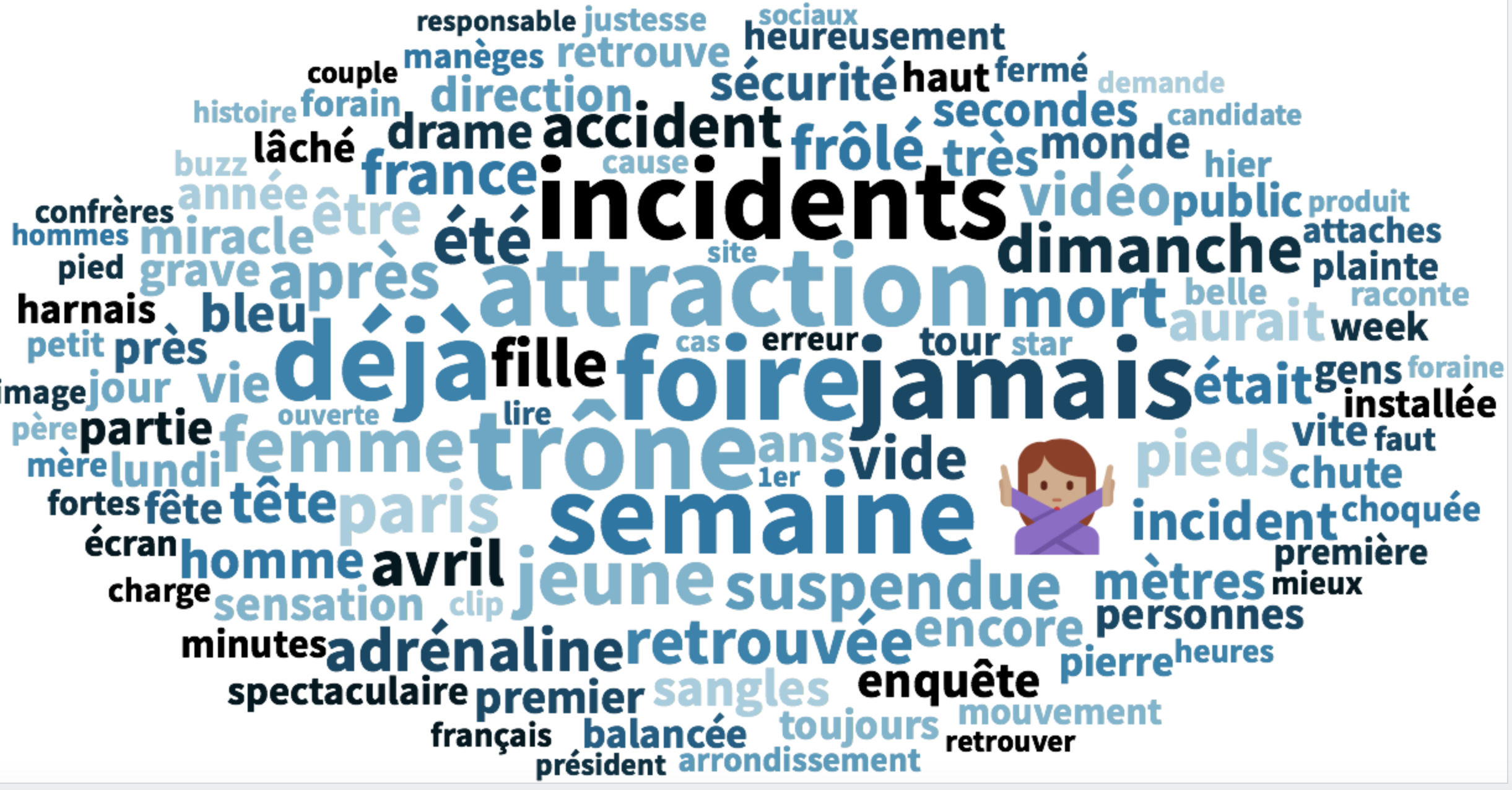
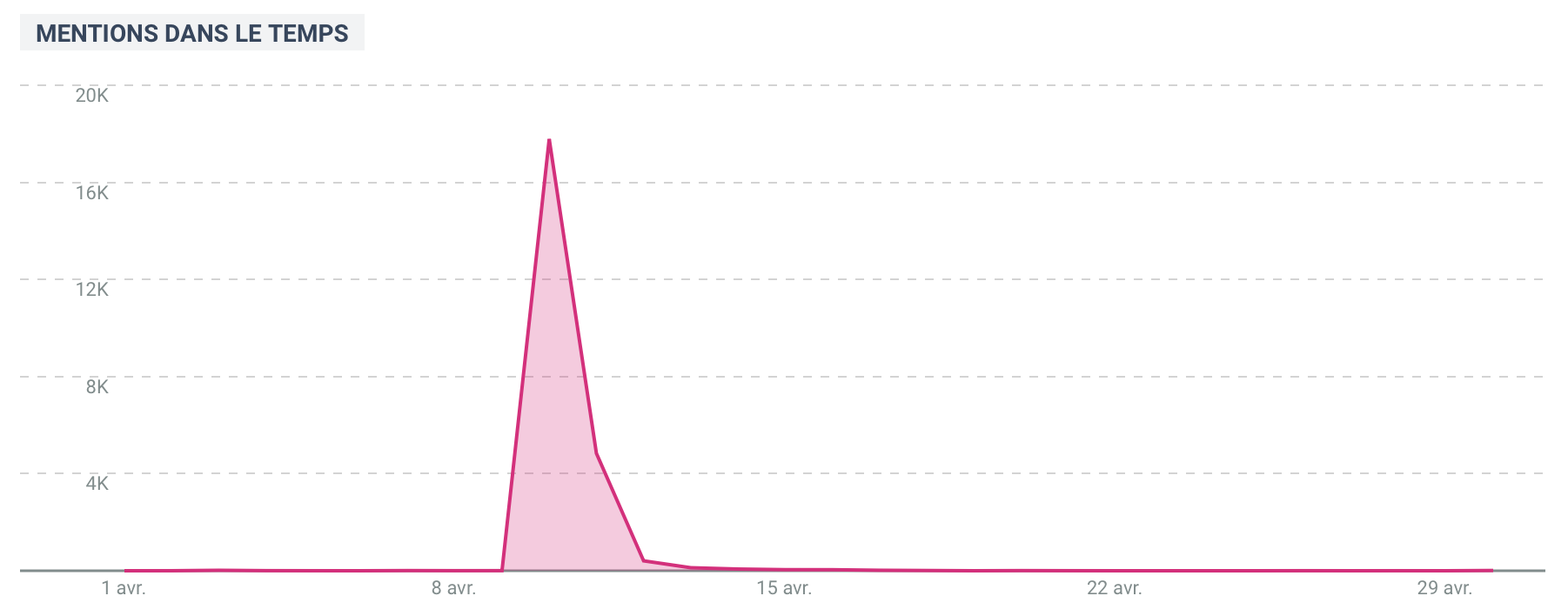 Teaching :
The impact of video is always a powerful vector.
32. Science Po Paris
Teaching :
The impact of video is always a powerful vector.
32. Science Po Paris
Location of crisis: Twitter
Place of dissatisfaction: Twitter Crisis level :1
 Science Po will apologise on its Facebook page:
Science Po will apologise on its Facebook page:
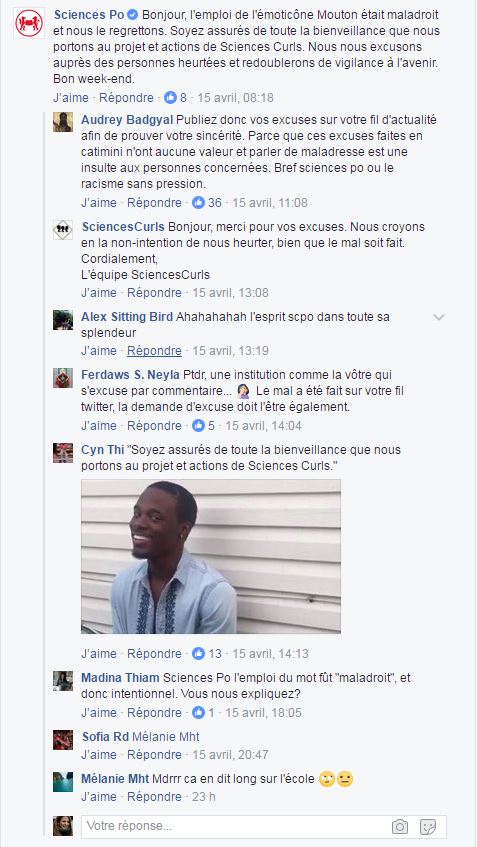 Teaching
Sensitive subjects that can lead to misunderstandings.
33. Ikea
Teaching
Sensitive subjects that can lead to misunderstandings.
33. Ikea
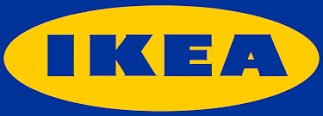
Location of crisis: Facebook
Place of dissatisfaction: Facebook Crisis level :1
"We're going to transform Småland from a playground to a digital playground! Our research into children's play habits has shown that today's children prefer tablets to physical activities. So we're going to replace the magical forest with a paradise of seats and tablets - recreating the way your children play."
This did not go down well with the public, causing a bad buzz on the Facebook page.
Teaching Another joke gone wrong. 34. Adidas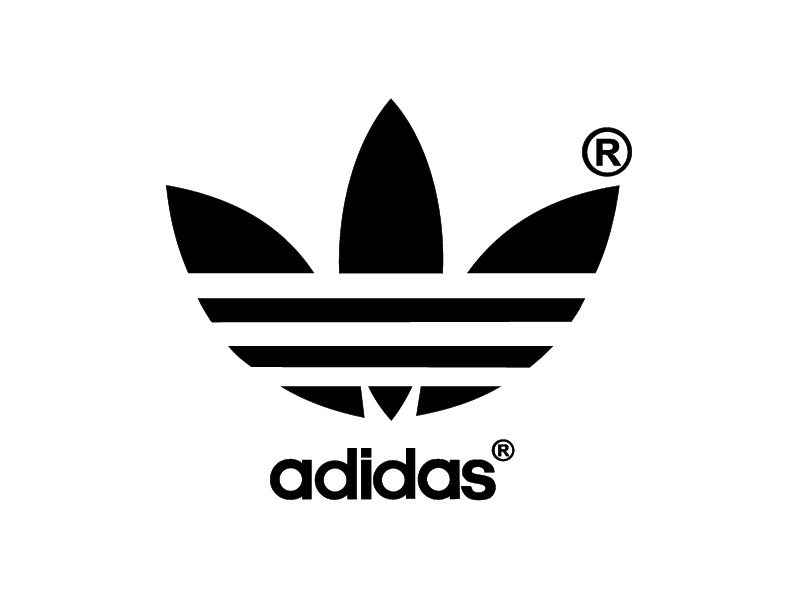
Place of crisis: E-mail
Place of dissatisfaction: Facebook / Twitter Crisis level :1
On the occasion of the Boston Marathon, sports equipment manufacturer Adidas sent out an e-mail congratulating its consumers on having taken part in the race. The word chosen was "survived". An unfortunate choice in view of the terrorist attack on the marathon the previous year. Adidas has apologised for this haphazard wording.
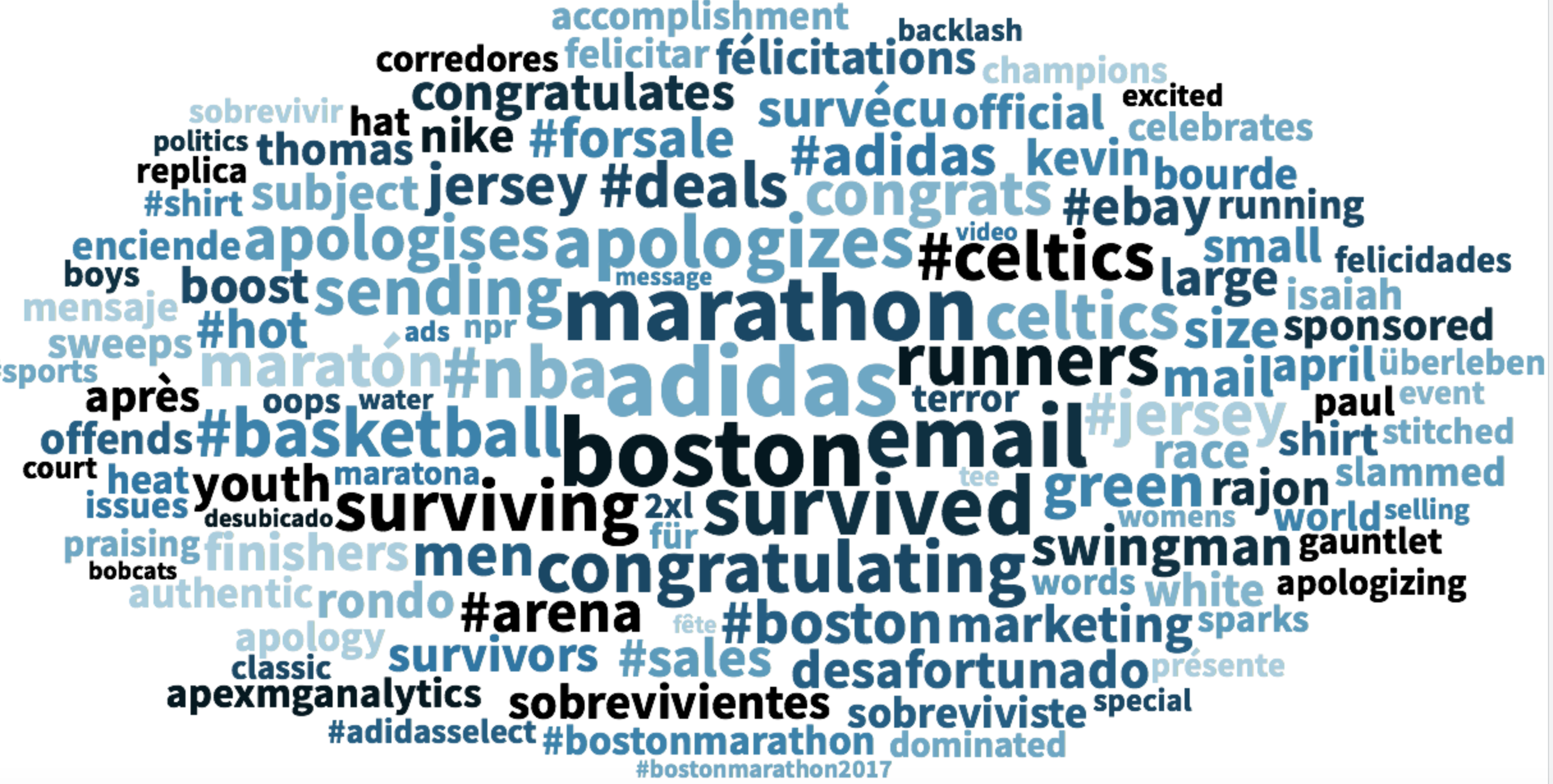
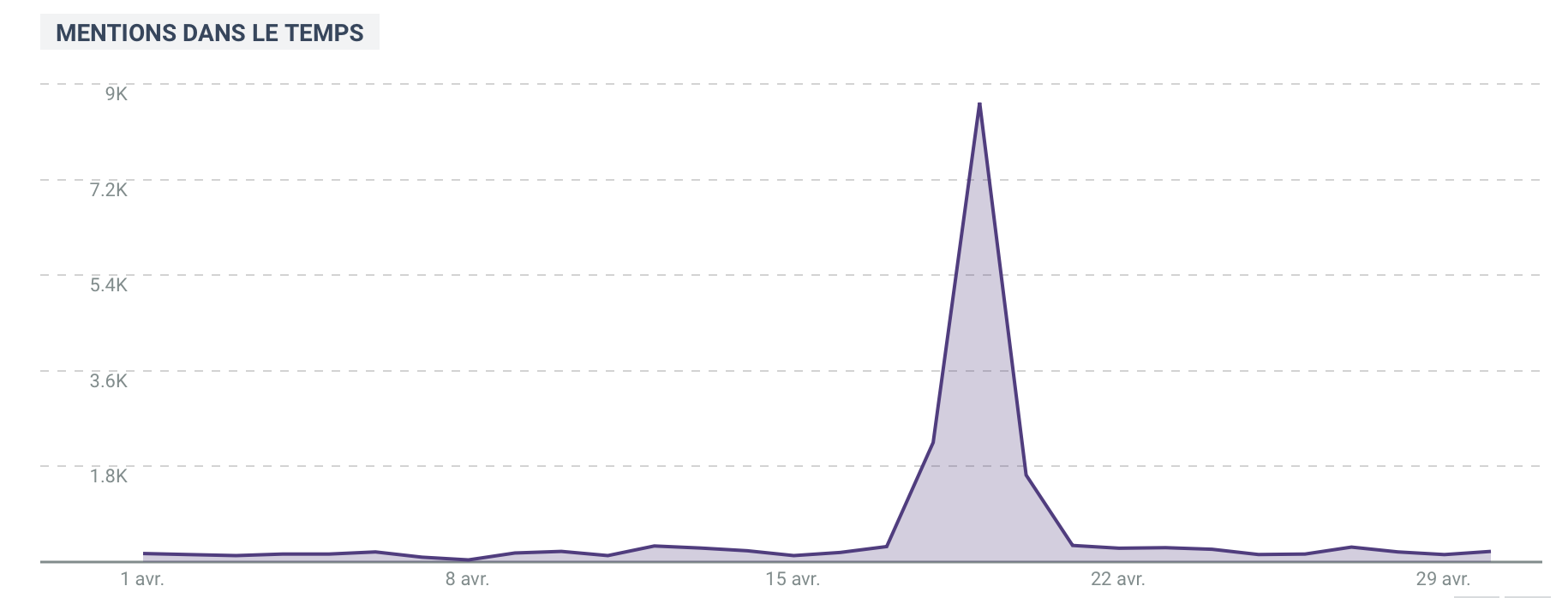 Teaching:
Always check your message first, as this could have been avoided by a pre-publication checking procedure.
35. Zara
Teaching:
Always check your message first, as this could have been avoided by a pre-publication checking procedure.
35. Zara

Place of crisis: E-mail
Place of dissatisfaction: Facebook / Twitter Crisis level :1
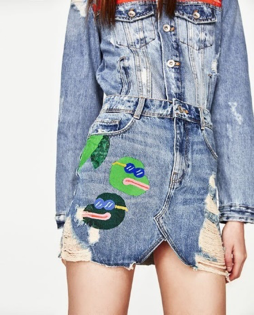 To justify its actions, Zara explained that the skirt was part of a collection produced in collaboration with very select artists. Mario Santiago, the designer, claimed that the idea for the skirt had come to him while painting with friends a few years earlier, so the sign had no connection with extremism.
To justify its actions, Zara explained that the skirt was part of a collection produced in collaboration with very select artists. Mario Santiago, the designer, claimed that the idea for the skirt had come to him while painting with friends a few years earlier, so the sign had no connection with extremism.
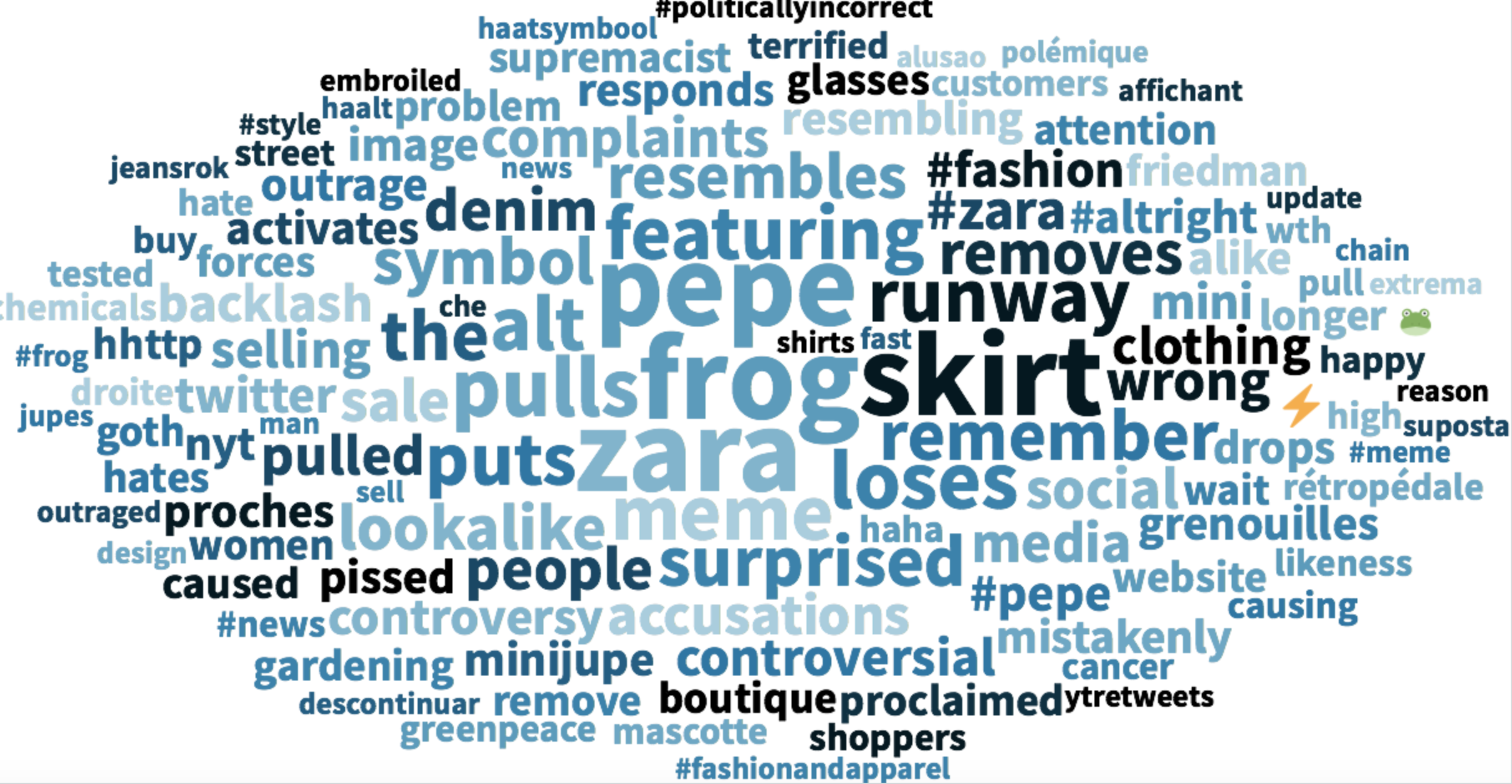
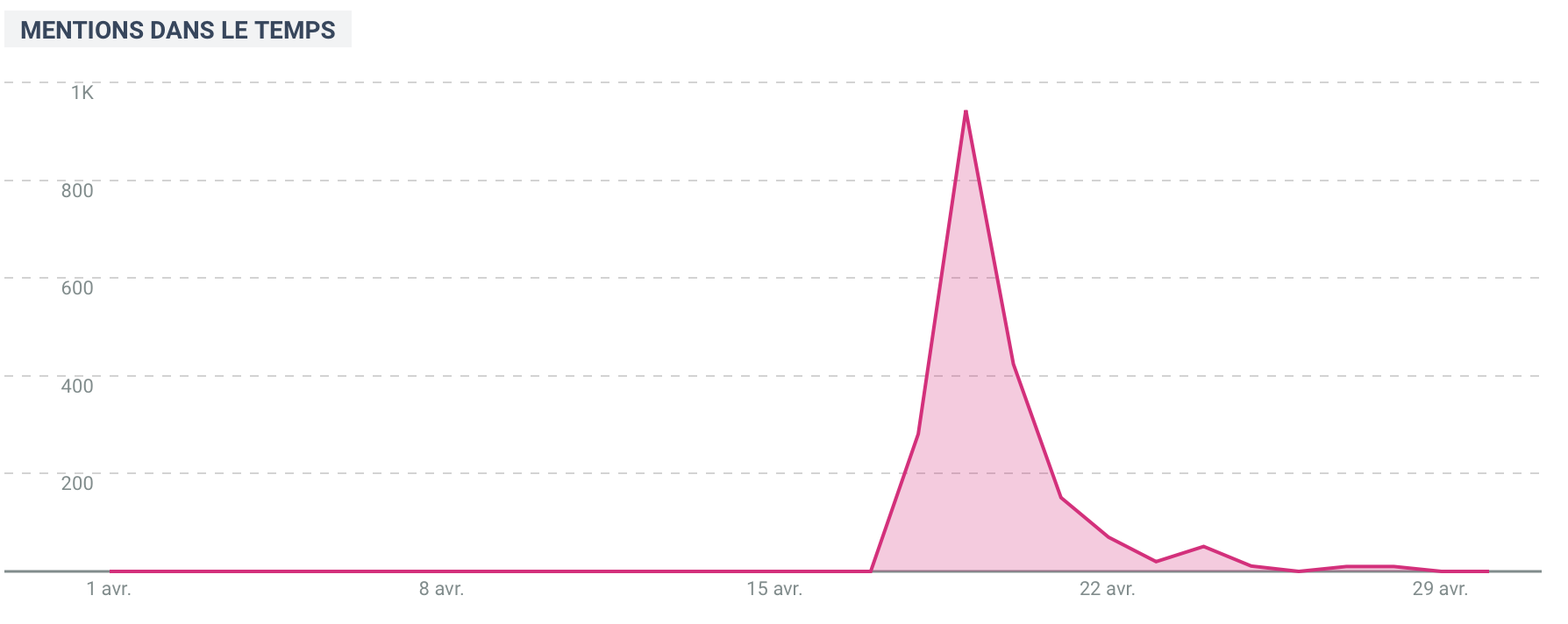 Teaching:
The context of the moment influences our interpretation of events.
36. Rue du commerce
Teaching:
The context of the moment influences our interpretation of events.
36. Rue du commerce
Place of crisis: E-mail
Place of dissatisfaction: Facebook / Twitter Crisis level :1
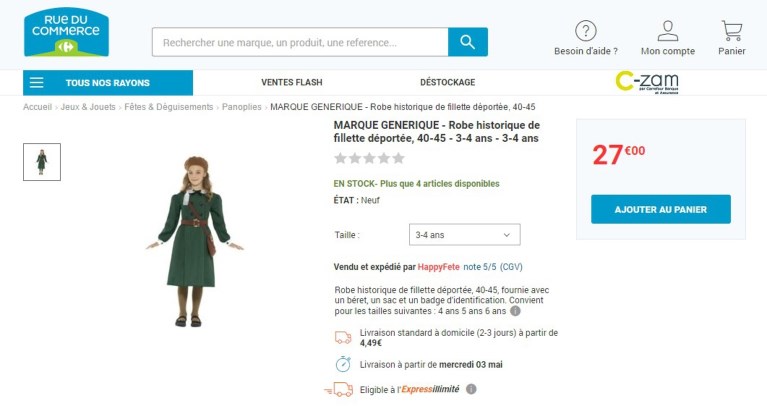
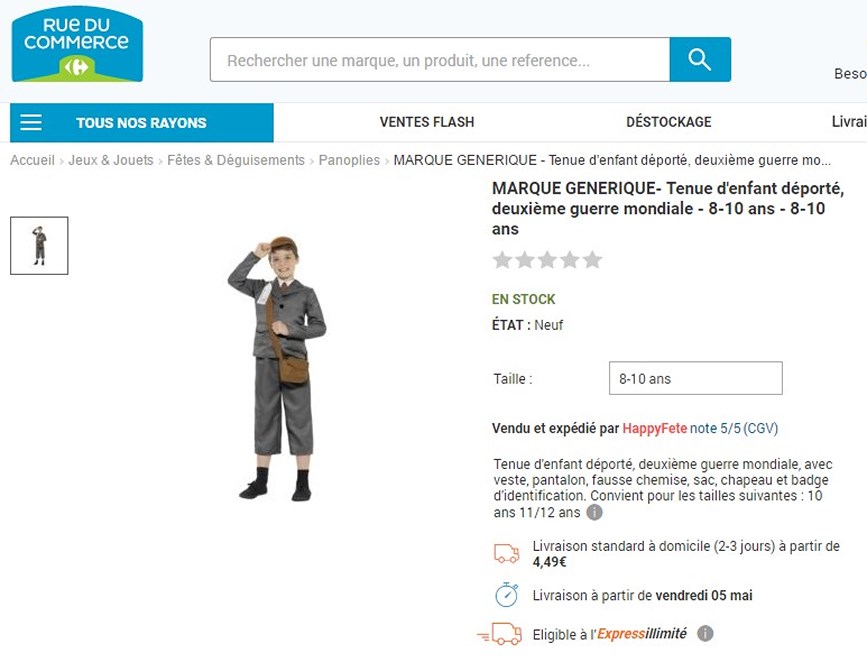
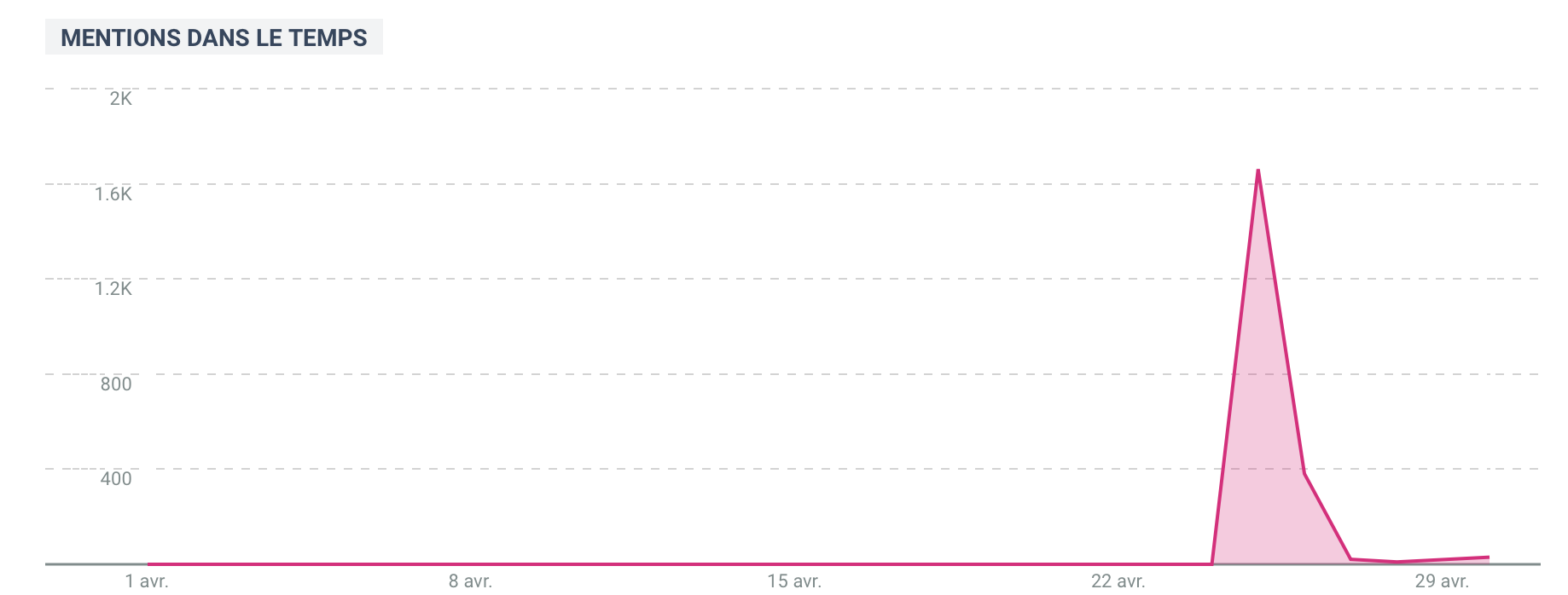 The site reacted quickly and removed the articles, stating: "We would like to apologise" on social networks before adding: "We strongly condemn the sale of these costumes and have immediately withdrawn them from sale". Rue du Commerce also stated that"an audit of the online procedures [had] just been carried out to ensure that this does not happen again".
The site reacted quickly and removed the articles, stating: "We would like to apologise" on social networks before adding: "We strongly condemn the sale of these costumes and have immediately withdrawn them from sale". Rue du Commerce also stated that"an audit of the online procedures [had] just been carried out to ensure that this does not happen again".
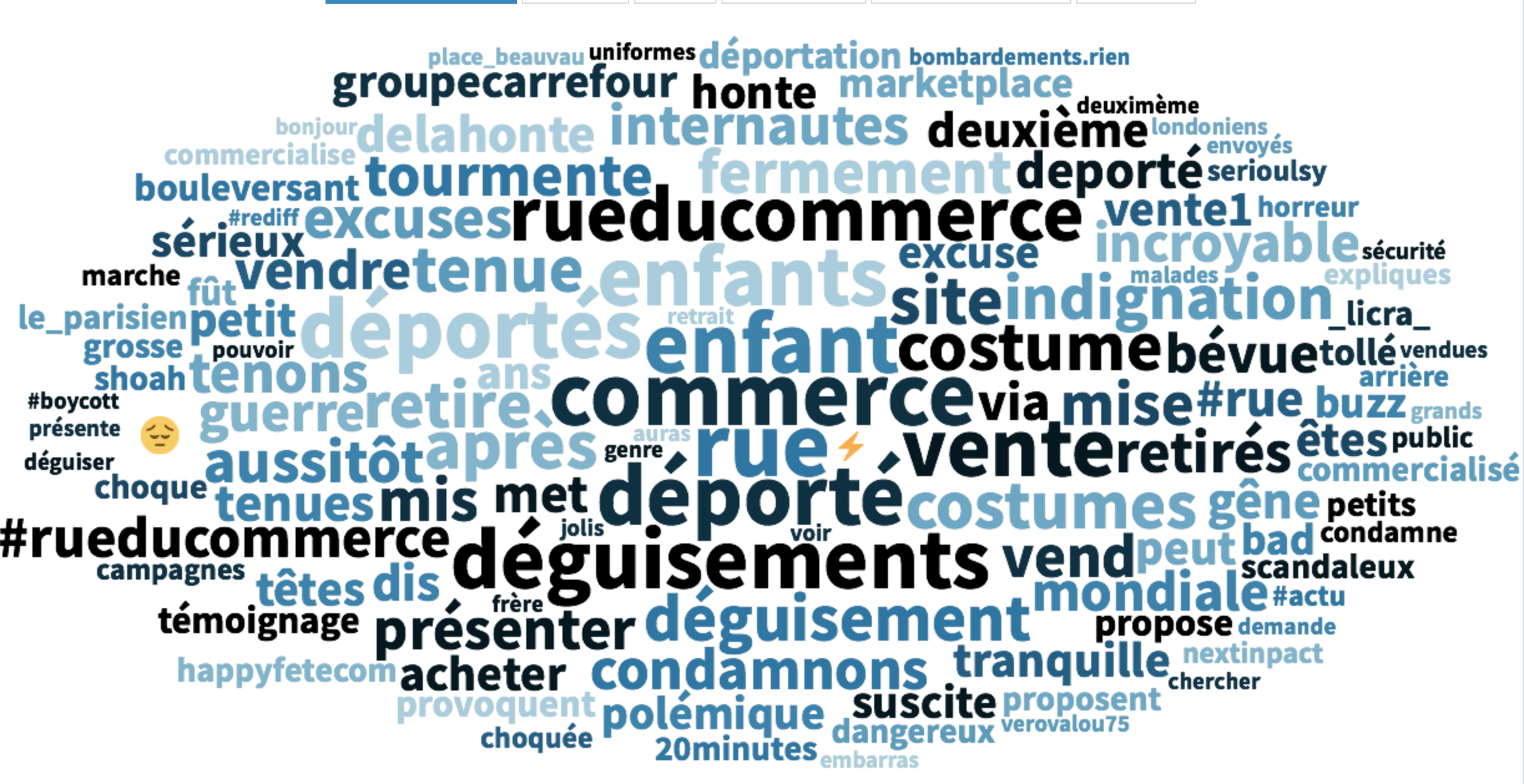 Lessons learned:
Another case of controversial clothing in a large Internet database.
37 . Balenciaga
Lessons learned:
Another case of controversial clothing in a large Internet database.
37 . Balenciaga
Location of crisis: Twitter
Place of dissatisfaction: Twitter
Crisis level :1
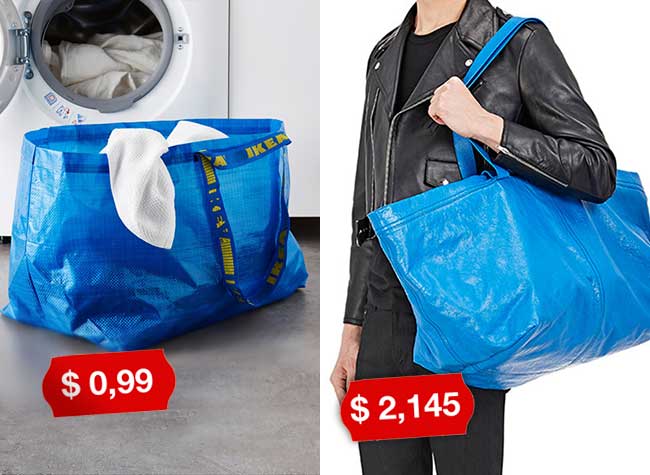 The bad buzz quickly went international, with over 80,000 tweets.
The bad buzz quickly went international, with over 80,000 tweets.
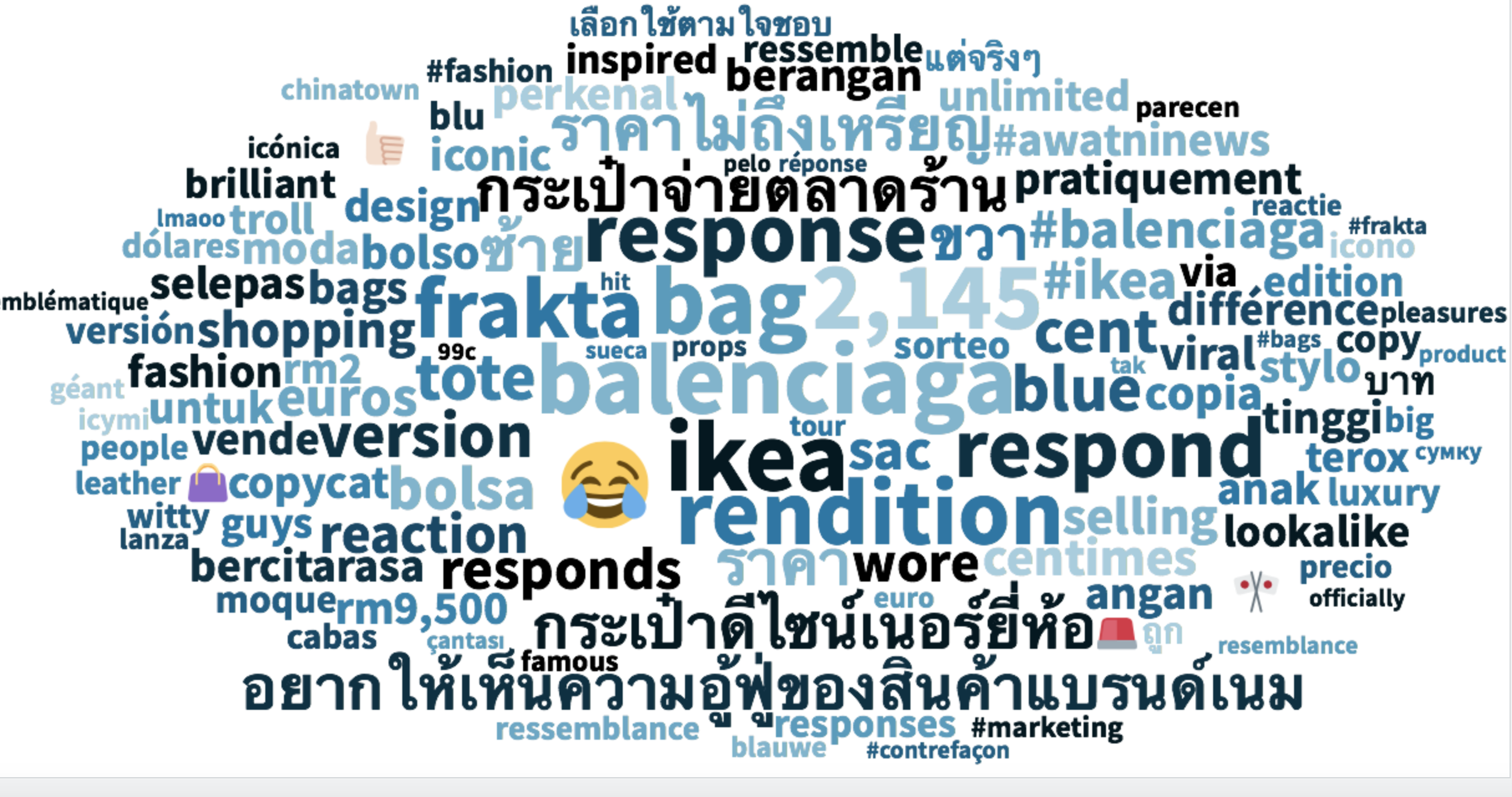
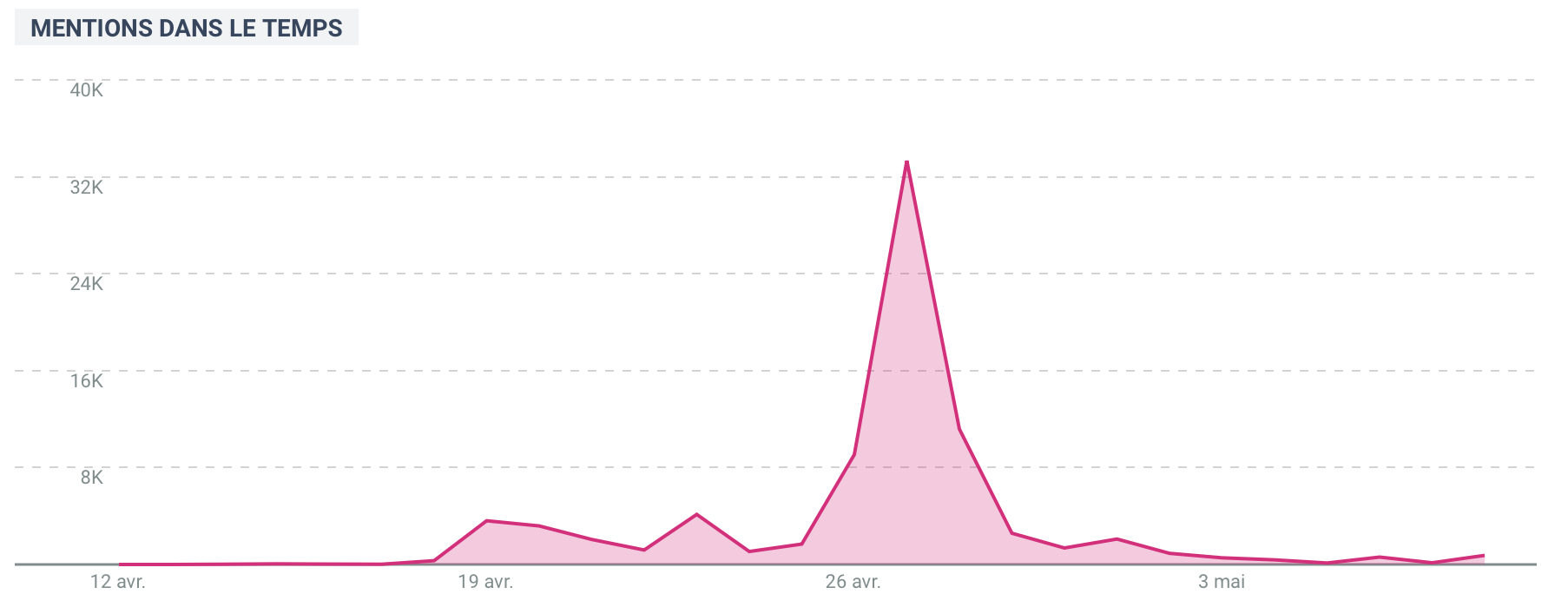 Teaching:
The volume grows quite quickly when the humour kicks in.
38. PRPS Barracuda
Teaching:
The volume grows quite quickly when the humour kicks in.
38. PRPS Barracuda
Location of crisis: Twitter
Place of dissatisfaction: Twitter
Crisis level :1
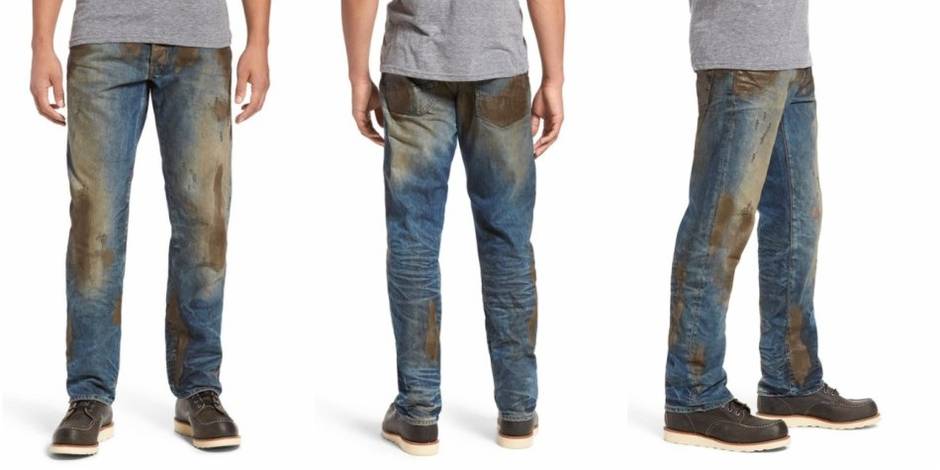 Teaching:
Nothing special.
39. Crédit Agricole
Teaching:
Nothing special.
39. Crédit Agricole

Location of crisis: Facebook
Place of dissatisfaction : Blog
Crisis level :1
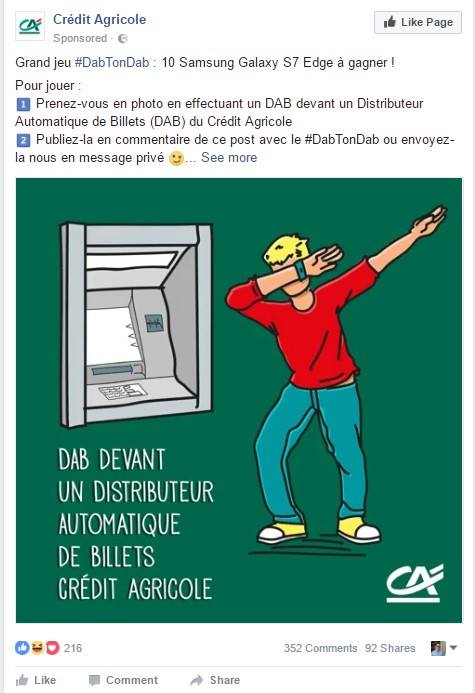 Teaching:
Sometimes blog posts can still make a bit of noise!
40. Dolce Gabanna
Teaching:
Sometimes blog posts can still make a bit of noise!
40. Dolce Gabanna
Location of crisis: Instagram
Place of dissatisfaction: Instagram
Crisis level :1
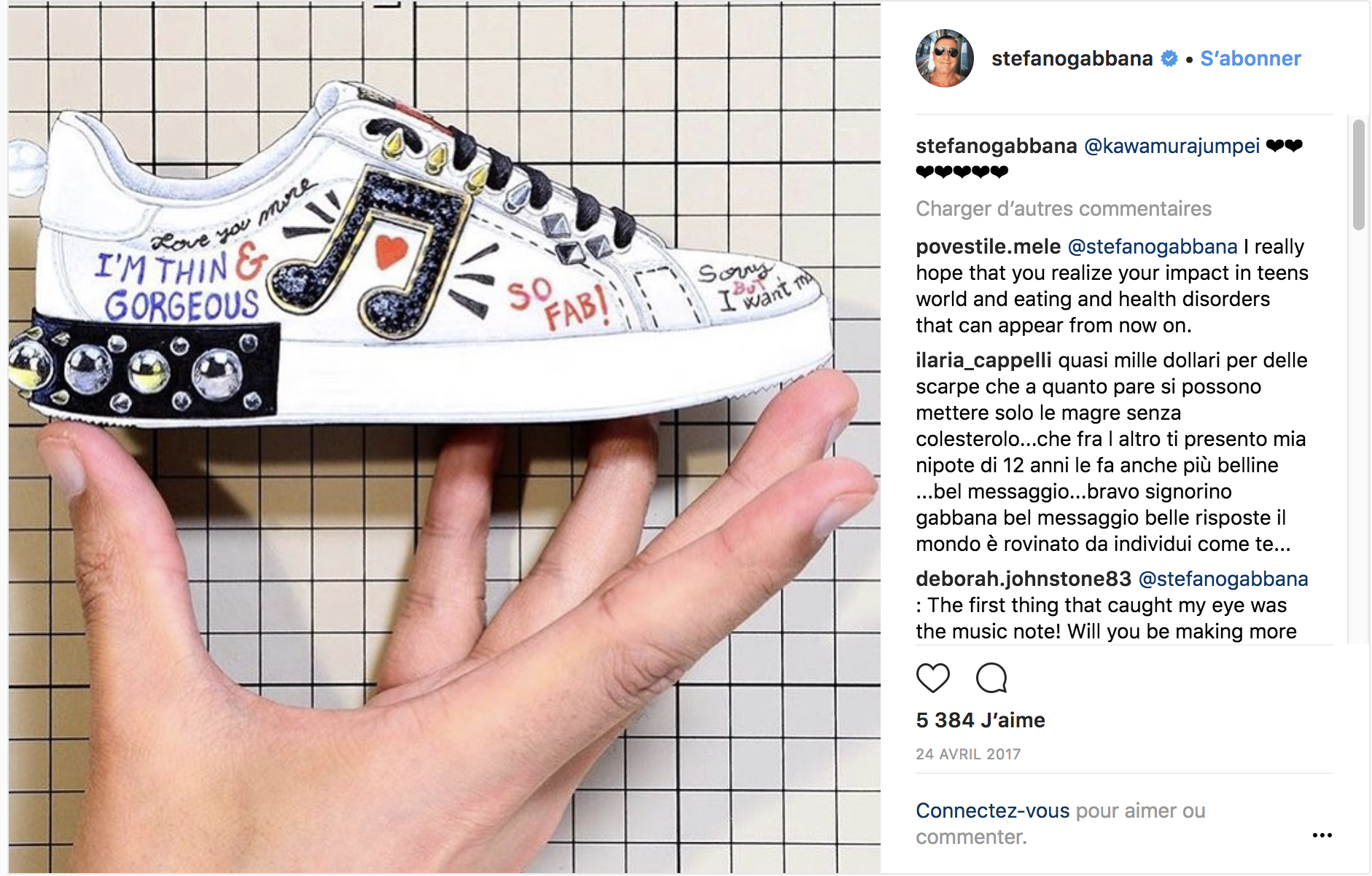 Lesson:
Instagram is becoming an increasingly scrutinised medium for journalists.
Lesson:
Instagram is becoming an increasingly scrutinised medium for journalists.

